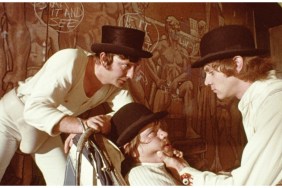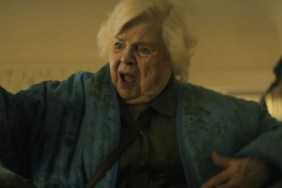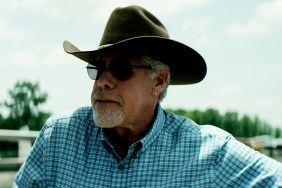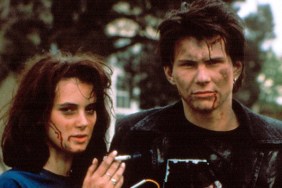
William Everson, for Cinema 3 in 1972 sits down and talks to Anthony Burgess and Malcolm McDowell to discuss Stanley Kubrick‘s A Clockwork Orange, a film adapted by Kubrick from Burgess’ novel and starring McDowell, as I’m sure you all know, as Alex, a young delinquent and leader of a band of “droogs” who finds himself part of a government re-conditioning program.
What initially caught my attention is McDowell’s quick and insistent disagreement with Everson on Kubrick and his working habits, which, if I’m correct in reading between the lines, boils down to, “If you signed on to star in a film for a director, you should be expected to do as the director says and if that means you work hard to make something right, that’s what you do.”
I also enjoyed the examination of the dialogue in the film and the way Burgess essentially created a new language for the story’s hoodlums and then there’s this response when he’s asked about the film’s title:
“Well, the title has a very different meaning but only to a particular generation of London Cockneys. It’s a phrase which I heard many years ago and so fell in love with, I wanted to use it, the title of the book. But the phrase itself I did not make up. The phrase ‘as queer as a clockwork orange’ is good old East London slang and it didn’t seem to me necessary to explain it. Now, obviously, I have to give it an extra meaning. I’ve implied an extra dimension. I’ve implied the junction of the organic, the lively, the sweet — in other words, life, the orange — and the mechanical, the cold, the disciplined. I’ve brought them together in this kind of oxymoron, this sour-sweet word.”
The feature runs just under 30 minutes, but if you’re pressed for time you can fast forward over the clips and save yourself about ten minutes.









